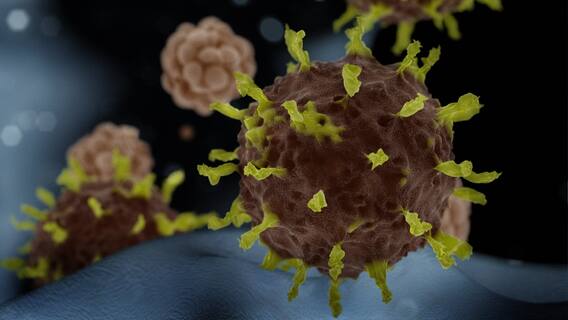Now, a blood test that can detect diseases earlier

Washington D.C. [USA], Nov 21 (ANI): Scientists have come up with a test, which they say could detect signs of a disease in its earliest stages.
The Purdue University researchers, including Jeffrey Rhoads, George Chiu and Eric Nauman, created microelectromechanical resonators, or small vibrating sensors, that can detect biological markers in small amounts of blood that they believe could be used to detect a myriad of diseases, infections and different medical conditions at early stages.
The plate-style resonant sensors allow sensitive, inexpensive detection of biomarkers that can signify disease, illness or trauma.
"The goal here is to find the disease so early that you can treat it without invasive surgery," Rhoads said. "The test looks for a particular protein related to a disease, so you could use this for the detection of many different diseases."
The sensors use a piezoelectrically actuated resonant microsystem, which when driven by electricity can sense a change in mass. The sensitivity of the resonator increases as the resonant frequency increases, making high-frequency resonators excellent candidates for biomarker detection, Rhoads said. The method also is much faster and less expensive than other types of medical tests.
Rhoads said they discovered a way to conduct the test that identifies a minute amount of protein in a very small amount of blood.
One of the first uses for the test could be the early detection of traumatic brain injury in athletes, particularly high school football and soccer players.
Research into the effects of repeated head impacts on high school football players has shown changes in brain chemistry and metabolism even in players who have not been diagnosed with concussions, Nauman said.
The newly-developed test can detect minute amounts of proteins, including protein from glial cells, which surround neurons in the brain. The proteins are secreted in relatively high concentrations in cerebrospinal fluid of victims of traumatic brain injury. Prior studies have found that a small amount of fluid leaked through the blood-brain barrier and got into the bloodstream of victims.
The test also is inexpensive so a high school football team could do several mass screenings a season, Rhoads said.
The test also could be used for the early detection of Alzheimer's disease and Parkinson's disease, Nauman said. "You can basically look for general neurodegeneration, not just in athletes."
The researchers believe the test also could be used to detect countless other diseases. They are looking for licensees to use the test to search for other small amounts of protein that are early signs of disease.
The paper is published in IEEE Sensors Letters. (ANI)
This story has not been edited. It has been published as provided by ANI
Trending News
Top Headlines































